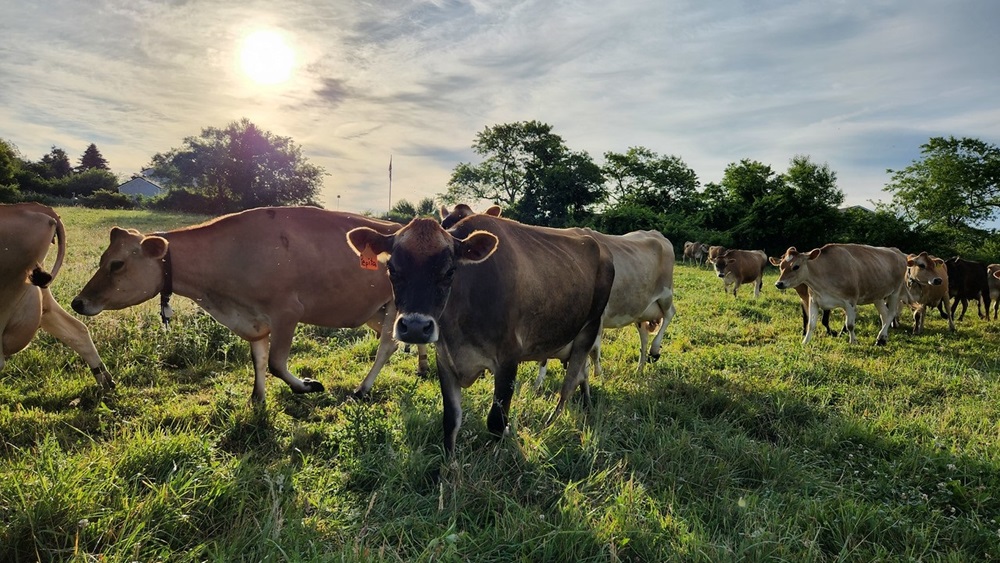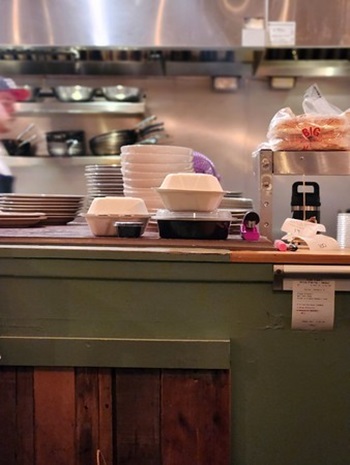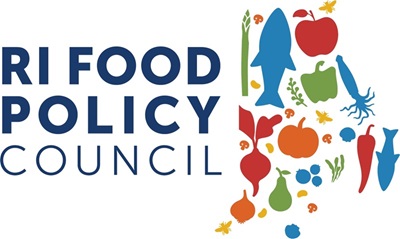Environmental Protection Agency awards the RI Food Policy Council $18.7M to launch major food waste, climate resilience, and community capacity-building project

Providence, RI (December 18, 2024) – The Rhode Island Food Policy Council (RIFPC) has been awarded a transformational $18.7M grant from the Environmental Protection Agency (EPA) Inflation Reduction Act Community Change Grants Program. The From Food Waste to Opportunity: A Path toward Climate, Environmental, & Economic Justice in Rhode Island project will enable a generational investment in the critical area of food waste reduction. More than 40% of unused food is sent to landfills, and about 8% of global greenhouse gas (GHG) emissions are attributed to food waste.
In Rhode Island, food waste is the top single material in the state’s waste stream. Over the next three years, RIFPC and its municipal and nonprofit partners will implement a multilevel approach to food waste reduction, donation, and composting in 64 contiguous qualifying census tracts in Providence, Pawtucket, and Central Falls and 14 in Newport and Middletown. These communities are ideal sites for the project based on the unique strengths of their residents, schools, businesses, nonprofits, and institutions.
“This project grew out of the close collaboration of many partners — community-based organizations, municipalities, composters, and conservation and environmental organizations.” says Diane Lynch, RIFPC Board President, “The resulting project plan will kickstart RI’s food waste reduction in an equitable, efficient and thoughtful way, and the benefits from this generous funding will be felt for many years to come.”
The From Food Waste to Opportunity: A Path toward Climate, Environmental, & Economic Justice in Rhode Island project will train over 500 people to participate in the circular economy, engage over 300 businesses, schools, and other organizations in excess food donation and food waste composting, create nearly 40 new jobs, provide free compost pickup services for 15,000 households in Environmental Justice communities (using clean electric trucks and bicycles), install over 30 community compost pickup locations and 9 new compost processing facilities ranging in size from small to large. By the end of the three-year grant term, over 11K tons of food waste will be diverted from the landfill, eliminating over 15K tons of CO2 equivalent from the atmosphere.

“Groundwork Rhode Island is thrilled to be part of this transformational effort to reduce wasted food and increase composting in the Ocean State. Our collective efforts will ensure that community-driven solutions to climate change, like our Harvest Cycle composting program, are at the forefront, creating jobs for local residents, building healthy soil to grow food, and keeping this valuable resource in the community where the food scraps were generated to benefit the people who live there,” said Amelia Rose, Executive Director, Groundwork RI.
RIFPC’s grant partners are deeply embedded within the defined communities. In addition to Groundwork RI they include Aquidneck Community Table, and Eastern Rhode Island Conservation District as well as statewide partners Center for EcoTechnology, FoodRecovery.org, URI Cooperative Extension’s “Food Recovery for Rhode Island” program, and Rhode Island Schools Recycle Project. Municipal collaborators are Providence and Middletown. The Rhode Island Department of Environmental Management, Division of Statewide Planning, Executive Climate Change Coordinating Council, and the U.S. Department of the Navy support the project.
“DEM is excited to partner with the Food Policy Council and other partners to minimize wasted food. Redirecting surplus food to people in need and composting the food that is no longer suitable to eat will greatly decrease a major source of waste in Rhode Island,” said DEM Director Terry Gray. “The work planned in this project will teach hundreds of Rhode Islanders how to manage and reuse this material and provide convenient curbside pickup for thousands of households. Fresh, healthy compost provides nutrients and soil additives for our local farms and gardeners. In the end, it will be a big win for our environment and our climate.”
Through the EPA CCG program, approximately $2 billion in Inflation Reduction Act (IRA) funds were made available for environmental and climate justice activities to benefit disadvantaged communities through projects that reduce pollution, increase community climate resilience, and build community capacity to address environmental and climate justice challenges. These place-based investments focused on community-driven initiatives to be responsive to community and stakeholder input.
“Food should be eaten, not trashed. I commend the Rhode Island Food Policy Council and their partners for their outstanding work to compost food waste, save money, and combat climate change. I am pleased to help deliver federal funds for this effort and hope it will be a catalyst for positive, sustainable change: building healthy habits, reducing community food waste, and promoting green jobs that help us turn yesterday’s food scraps into a cleaner environment,” said U.S. Senator Jack Reed, who helped make $2 billion available nationwide for Community Change Grants through the Inflation Reduction Act. “This is a long-term investment in preventing wasted food and reducing trash, taxes, and pollution. It will help prevent tons of food waste from ending up in landfills and it will reduce the amount of climate-harming greenhouse gas emissions.”

“The Rhode Island Food Policy Council and its partners do exceptional work strengthening the state’s food systems and expanding access to healthy meals,” said Whitehouse, who helped craft the Inflation Reduction Act’s Environmental and Climate Justice Block Grants as a senior member of the Environment and Public Works Committee. “This federal funding will reduce food waste while helping lead our planet to climate safety.”
ABOUT RIFPC
The Rhode Island Food Policy Council is an independent nonprofit organization devoted to creating a more just and resilient food system in the Ocean State. RIFPC was established in 2011 to help food system stakeholders connect with each other, learn, and educate decision-makers about their food system needs. We also support the implementation of the Rhode Island state food strategy through grant-funded programmatic work. We welcome all residents to join as volunteer Council members and to learn more about our programs.
RIFPC acknowledges the traditional custodians of the land called Rhode Island today, the Narragansett, Niantic, Nipmuc, Pokanoket, and Wampanoag nations.
